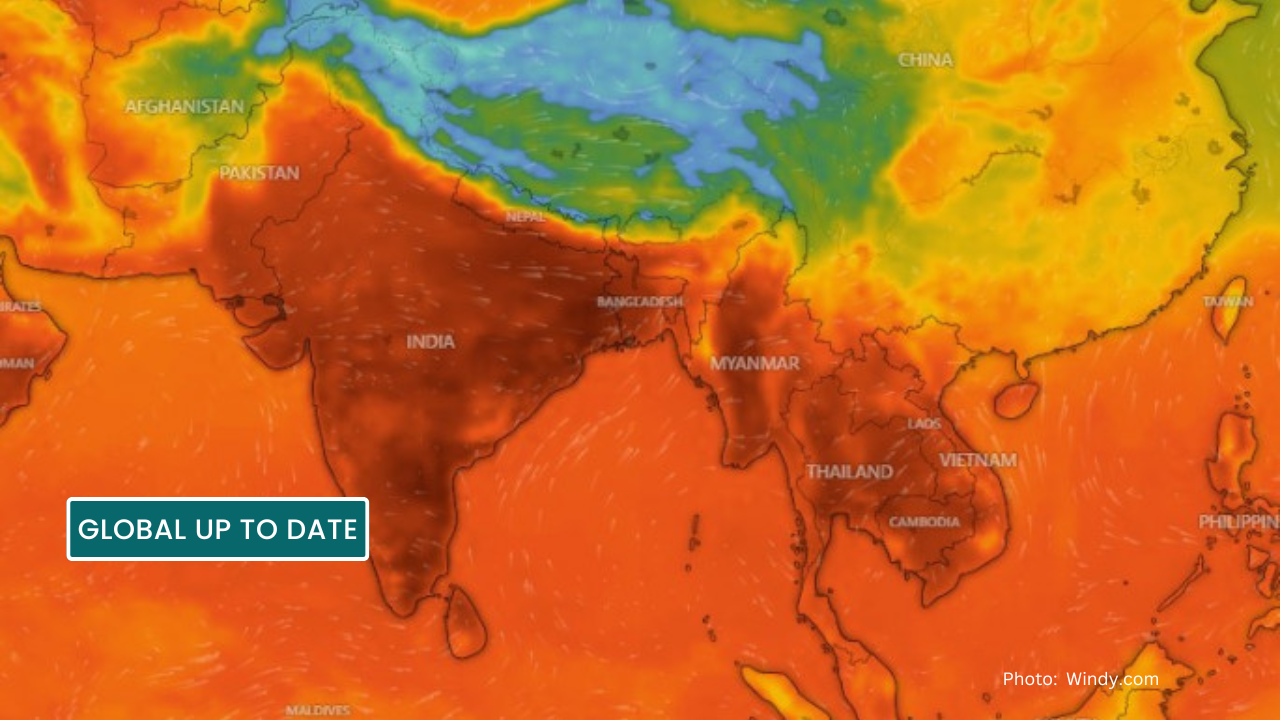Heat Waves: A Closer Look Into The Roots
Kazi Rhid | 30 April 2024
Due to the recent heatwave in South Asia there’s been a swarm of posts on social media about what can be done regionally in order to combat this. Many have gone on to say that it might be the local people’s fault for not planting enough trees. Is it the locals who are responsible for climate change? Bangladesh and its neighboring countries were late to industrialize unlike the western countries. If we look at the current emission data China and India are on the top tier of emitters but the finger pointing stops at the historical data of industrial emissions. Although in the current emissions USA is right up there with China but the latter has the shield of development to hide behind most of the countries in the west have already achieved.
The current heatwave has been nowhere close to what it was before. Air conditioner and electric fan sales have hit an all time high, in the capital of Bangladesh most electronics shops are selling fans and ACs at a higher profit because the demand is so high. In the past few days there has been reports of multiple people dying in heat induced illnesses. The primary education ministry had to stop schools for a week to lower the risks but you can’t stop schools indefinitely because of the heat that would mean to stop schools until the end of summer. The scariest part of all of this is that it is only the start of summer, usually the peak summer heat is at June-August. We can only imagine what would happen on those days, given the current situation. A heat officer has been appointed to many cities of the world including Dhaka to tackle the overwhelming sudden increase of temperature, which has had its own slew of criticisms.
Is the El Nino weather pattern to be blamed for the extreme weather? It is true that every two to seven years a period of 9-12 months is observed where the Pacific Ocean temperatures behave a certain way along with the wind patterns that increases the likelihood of extreme weather. This phenomenon has been observed since the 1600s but that combined with climate change has not been an easy pill to swallow for countries such as Bangladesh. By the calculation of the El Nino weather pattern it should be ending by this June since that is the 12-month mark, but scientist don’t think that the heat is just going to go away with El Nino, the combined effects of climate change have led the scientists to assume that the extreme weather will continue on. Every year as we move forward is going to be hotter than the last for at least the next few decades.
What is the solution for the increasing heatwave? As terrifying as it sounds there is not really a short-term solution other than to deal with it. Theoretically, we can say better urban planning, better irrigation mechanisms for agricultural fields, architectural developments, automating agricultural practices, automating labor work, better temperature control public transports are all good concepts, but they take enormous time and money. In reality there is really a short number of things we can do, as much as we would like to troll the chief heat officer, her advice of carrying a water bottle, having a hand fan, staying in shades or under an umbrella is a temporary deterrent. Alongside this it could also come down to empathy, letting people a drink of water in need can go a long way, opening up your shops and garages for people to just take a break during the peak heat of the day could help reduce the heat induced illnesses.
This region is on their own in this crisis, there are funds coming in from all across the world to solve this issue but at the end of the day the local population has to innovate and come up with the solutions for this crisis. The science has been solid, we knew this was coming, could we have prevented these deaths? maybe. There is no sure way of knowing what could have happened in the past but it is important that we realize that there are somethings that are in our control. Of course we aremad at billionaires and their frequent private jet trips, the train system of USA isn’t good enough that they have to use commercial airplanes so frequently, which is only increasing the carbon emissions. Why is it that the entirety of Europe and China have somehow figured out the train system better than the leader of the free world? The answers to these big questions are sometimes obvious but the implications based on those are not easy to come by but that doesn’t mean that we need to stop asking these questions. At the same time although recycling and giving a gulp of water to a passerby is not a holistic solution to the climate crisis and the ongoing heatwave, but that doesn’t mean that we shouldn’t do it anyways.
Kazi Rhid is a Content Strategy Coordinator at CGS
The views expressed in these write-up are solely those of the author and do not necessarily reflect the policies of CGS.
